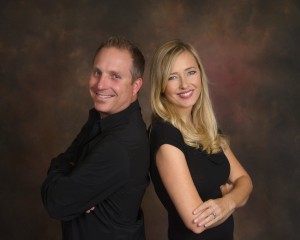My friend Bob has an eye for beautiful women –beautiful and wounded women.
Not surprisingly, the woman he is currently dating is in the middle of a tough divorce. Their relationship is intimate and this isn’t the first time he has found himself in this situation.
Once again, Bob finds himself racked with guilt, shame, and remorse. Inevitably, it ends in a broken relationship with the woman feeling used and embittered.
Over and over, Bob ends up feeling distant from the God he loves and desires to serve, fully aware there is a better way to live. I know he has seen the type of relationships he desires –one based on love and honesty where intimacy is appropriately saved until the day the wedding vows are exchanged. And I know in the deepest part of his heart, godly intimacy and a loving marriage is what he desires.
So why does he continue to fall into the same rut every time? Why does he put himself in this painful situation over and over? Isn’t the reverberation of guilt and shame enough to cause him to move in a different direction?
It reminds me of the simple house fly. Painfully, no matter how many times he smacks in to the window, he can’t get out. And unless he finds another way, he will die on the windowsill.
I have some theories on this.
First, I don’t want to discount that patternistic disobedience can often be linked to addiction. He may simply be a sex addict. And he knows that he can get his sexual desires met by preying on hurting women looking for love in the aftermath of a broken relationship. I won’t go into an in-depth analysis on addiction here, but there are some great resources for men and women dealing with sexual addiction and seeking sobriety at http://www.sa.org/.
Second, I also don’t want to overlook his broken past. Having gone through a horrific divorce with his ex-wife, I know he has a hard time trusting women. But clearly he can’t justify his behavior, and he and I both know he needs to come to a place of forgiveness because the pain of resentment is destroying him.
So why doesn’t Bob get the help that he needs? If he wants to honor God in his relationships and experience the trust and intimacy from a godly marriage, why doesn’t Bob pursue healing? I think it’s possible it all stems from an innate, subconscious cost/benefit analysis that keeps many of us trapped in sin.
Let me lay it out for you. My friend Bob knows he needs to kick his sexual addiction, and it will take some time. Many Christian psychologists will tell you it takes a minimum of a year of hard work(often with multiple meetings each week). And if he desires to gain the trust of a Godly woman, he needs to establish a track record of sexual purity. He is going to need to put some time between his sexual promiscuity and his future dating life. Let’s say that all of this work takes about 1 ½ years.
Then, he is going to have to begin dating with the intent to find a suitable wife. This is no easy search. It is possible with his new mindset, the first person he dates might meet his criteria and he is off to the races. But I have been around way too many relationships to know how unlikely this is.
Even with a plan to date with the intent to marry, it takes a lot of time to find someone suitable. Let’s say that this search takes at least another year. Then, if he is going to really get to know his new-found girlfriend, he will need time to build a relationship. Because he has kids from his previous marriage, I imagine the woman he dates will probably also have kids.
I believe the best process to foster trust and prepare for all of life’s circumstances requires dating through the seasons. And even if Bob asks her to marry him before the calendar year culminates, they are going to need to plan the wedding. Even the most accelerated timetable requires a few months to execute. So let’s say that from their first date to the wedding night will be between 12 and 18 months.
Now let’s do the math:
Breaking addiction, finding healing, establishing purity 1½ years
Search for a suitable partner 1 year
First date to marriage 1 to 1½ year
Total Time Elasped 3½ to 4 years
It is my belief this simple time equation is what keeps people from pursuing God’s best for their life.
Discipline and life-change takes time, and it is hard work, and there are no shortcuts.
I am living proof that the benefit far outweighs the cost, but I can’t convince Bob of this. He has struggled through his broken sexual relationships for eight years now.
I believe when he counts the cost of pursuing God’s will for his relational life, he believes it is just too high.
But is it?
If he would have started five years ago, his story could be so different. He can’t imagine staying sexually pure for a month, let alone a couple of years. So he throws in the towel and continues the pattern. But what are his alternatives?
I wonder how long he will continue to fly into the window before he dies on the window sill.
–Tim
Photo Credit: Pinterest




